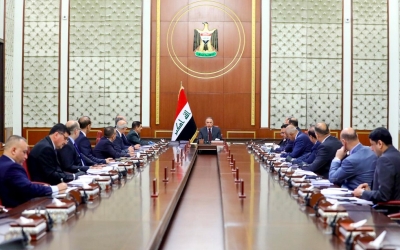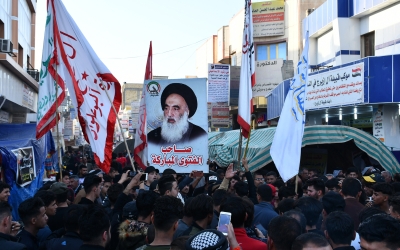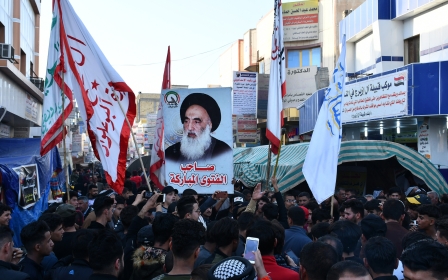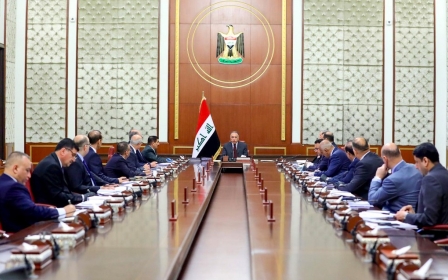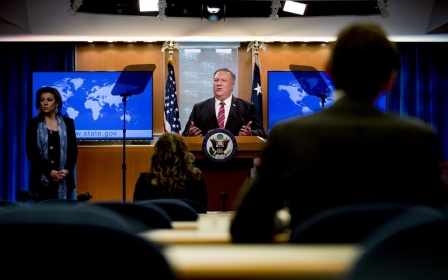'Today is a message': Anti-government protests resume in Iraq
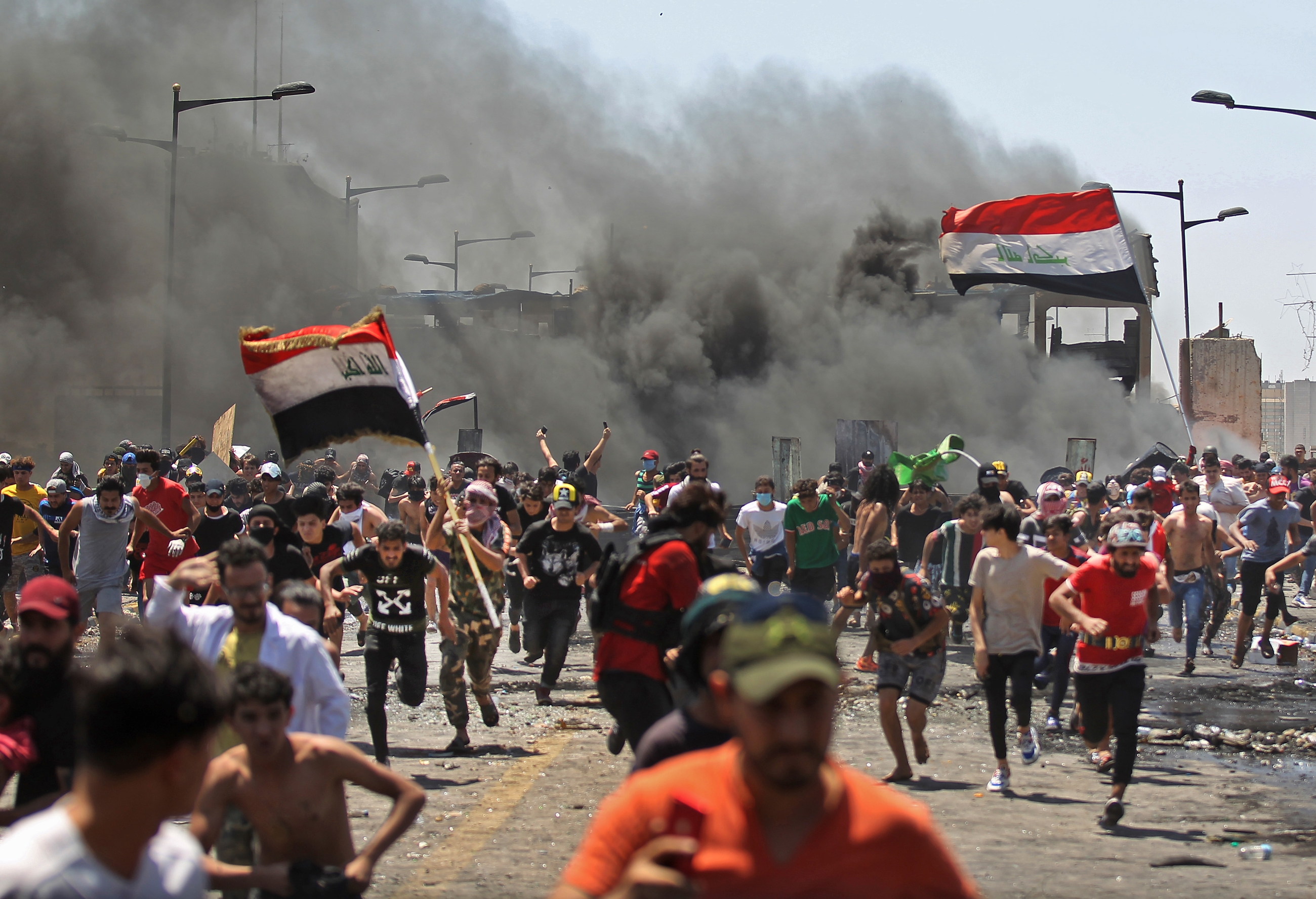
Anti-establishment protesters again spilled onto the streets of cities across Iraq on Sunday, ending months of relative calm just days after Prime Minister Mustafa Kadhimi’s government came to power.
Protests first erupted in Baghdad and Shia-majority southern cities in October, demanding an end to corruption and unemployment and an overhaul of the ruling class.
More than 600 protesters were killed in a crackdown by Iraqi government forces who resorted to live fire to suppress the demonstrations and sit-ins.
The movement wound down in recent months due to internal splits, US-Iran tensions and a lockdown imposed by the coronavirus pandemic.
Kadhimi, whose cabinet was approved by parliament earlier this week, extended an olive branch to protestors on Saturday, promising to release demonstrators and compensate the families of those killed.
But activists view the new government as part of the same reviled political class, and this week issued calls on social media for fresh protests.
By noon on Sunday, dozens had gathered at the epicentre of the October protest movement in Tahrir (Liberation) Square, an AFP correspondent said.
"The people want the fall of the regime!" they shouted, pelting rocks and Molotov cocktails at security forces blocking off the adjacent al-Jumhuriyah bridge, which leads into the high-security Green Zone hosting government offices and foreign embassies.
The protesters, mostly teenage boys, managed to clamber over a first barrier on the bridge as security forces responded with water cannon and tear gas.
A medical source told AFP that 20 protesters had suffered breathing difficulties from the gas but no shots were fired.
General reinstated
In Nasiriyah, a protest hotspot further south, dozens of protesters shut off streets with burning tyres and threw rocks at security forces, who responded with tear gas.
Their demands echoed the previous rallies: early elections under a new voting law and accountability for the hundreds of people killed in protest-related violence since October.
Protesters turned out overnight in the city of Kut, setting fire to the headquarters of the Iran-backed Badr Organisation and to the home of an MP affiliated with another Tehran-aligned faction, according to an AFP correspondent.
Hundreds more hit the streets on Sunday morning.
On Saturday, Kadhimi called on parliament to adopt the new electoral law needed for early polls as demanded by the protesters.
He also reinstated and promoted General Abdulwahab al-Saadi, a popular military figure whose abrupt dismissal by previous premier Adel Abdul Mahdi in September had been a main catalyst of the first protests.
However, many demonstrators remained sceptical.
"We will give him (Kadhimi) 10 days to prove himself, and if our demands aren't met, then we will escalate," said Mohammad, a student protester returning to Tahrir on Sunday. "Today is a message."
Middle East Eye delivers independent and unrivalled coverage and analysis of the Middle East, North Africa and beyond. To learn more about republishing this content and the associated fees, please fill out this form. More about MEE can be found here.


